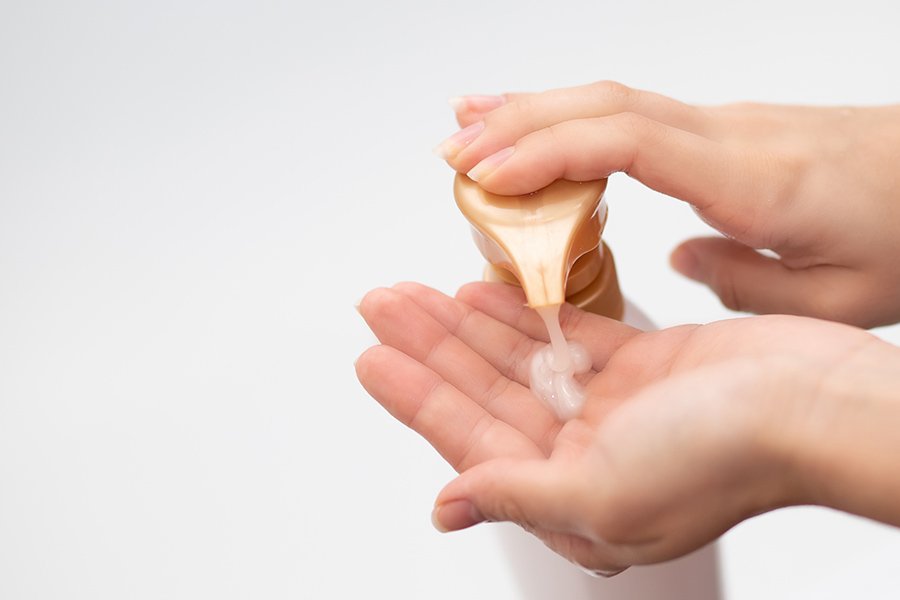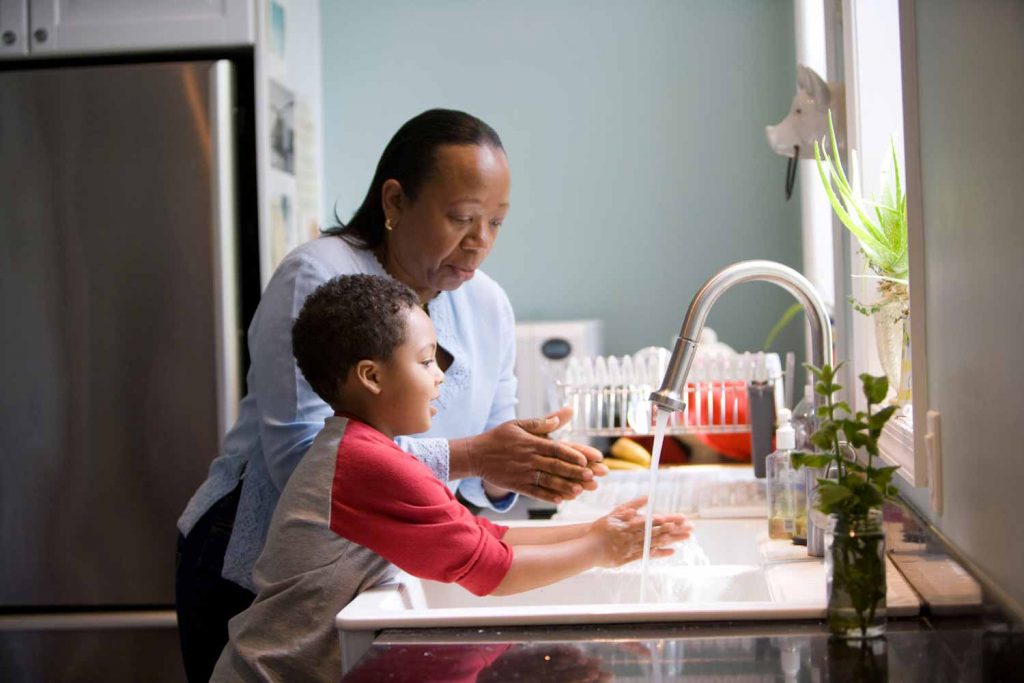
Good Hygiene Practices with Light Therapy
The current pandemic has forced us all to think about protecting our health and the health of those around us. Practicing good hygiene and effective cleanliness are the most effective ways to act to keep everyone healthy1. Even in normal times, being conscious of cleanliness in our home and work environments is critical for personal and public health. Any habits that we learn during this time will not only help us through this crisis, but will be important to continue practicing moving forward.
How do Germs Spread?
Germs such as bacteria or viruses can spread from person-to-person or from an object to a person12. Germs usually infect a person when they touch their eyes, nose, and mouth with unwashed hands12. Some of the most common ways that infections can get on our hands include preparing food, handshaking someone who previously coughed or sneezed in their hands and who may be ill, or from touching dirty surfaces12. Healthy hygiene habits can counteract these common sources of infection to protect your health and immune system, and of those around you.
Personal Hygiene: Handwashing is Critical
There is a reason we all drill hand washing habits into ourselves and our children at an early age � the World Health Organization (WHO) recommends washing thoroughly and regularly to kill viruses that could make you sick1. Handwashing is the most effective measure that you can take to reduce the chances of becoming infected with coronavirus1,3. Washing your hands when preparing or before eating food, before and after being around sick people, after being close to children or pets, after cleaning, and after going to the toilet can drastically reduce the chance you become ill from the germs around you12.
Washing your hands is more science than art - viruses are vulnerable to the simple combination of soap and water13. All viruses have two main parts: their "guts" made up of genetic information like DNA and RNA which are crucial to their survival and reproduction, and a protective "shell" - a protein or lipid structure that houses the virus' guts11. When you wash your hands with soap and water, the soap molecules stick to both the virus and the flowing water13. As the water moves, the soap pries open the virus, releasing its guts and killing it13. For this process to work, wash your hands with soap and water for at least 20 seconds1. Alternatively, you can also use an alcohol-based (at least 70% alcohol) hand sanitizer to help you keep your hands clean when hand washing is not an immediate option1.

Practice Good Respiratory Hygiene
Like handwashing, practicing good respiratory health can protect yourself and others around you from germs like the coronavirus, which can spread through droplets of fluid when an infected person sneezes or coughs5,6. These droplets can get into other people's bodies through the air via their mouths, eyes or nose, meaning that handwashing alone does not fully protect people from germs6.
The simplest way to practice respiratory hygiene is to cover your mouth and nose with your bent elbow or a tissue when you cough or sneeze. If you use a tissue, make sure you dispose of it safely and immediately. Wearing a face mask can also help keep droplets from moving far through the air and infecting others. By following good respiratory hygiene you protect yourself and the people around you from any airborne viruses (e.g. viruses causing cold and flu), not only the coronavirus that causes COVID-191.
Check out the WHO page to learn all basic protective measures against the new coronavirus.
Cleaning Personal Items & Your Household
To avoid being infected by germs that live on surfaces, it is critical to clean areas that you and other people touch regularly like doorknobs and counters. Other important items to clean are things that you touch frequently like your cellphone, computer keyboard, and toothbrush holder7. For cleaning electronics and touch screens you can use alcohol-based wipes or sprays containing at least 70% alcohol, following the cleaning guidelines that come with your device upon purchase2. Wash your hands after handling items that you cannot realistically clean but you know people before you were touching (like money)7.
A New Science-Based Approach: Harnessing UV Light to Eradicate Viruses
A properly used UV-C light sanitizing device can also help you to clean most of the above-mentioned surfaces or devices. Ultraviolet (UV) light is naturally emitted from the sun and passes through the atmosphere to shine on the earth8. The most powerful form of UV light, UV-C light, is mostly absorbed by the atmosphere above us8. When utilized safely in a germicidal lamp, UV-C light destroys the nucleic acid-filled guts (DNA or RNA information) in these germs (viruses and bacteria), which removes their reproductive capabilities and kills them9. Proper use of a UV-C light sanitizing device can help you in your efforts to maintain a clean household or workplace9,10. Short-wave UV-C, however, should only be used on surfaces and devices, it should never be used on human skin because it is harmful.
We Are All in this Together
Battling the COVID-19 pandemic is stressful for all of us and requires us to be conscious about our practice of hygiene and sanitation. Now more than ever it's important to act united as a community and to implement sound standards of cleanliness both at home and at work.
But more than this, the current pandemic is a source of tremendous stress. While personal hygiene can help us protect our physical health, mental hygiene, or maintaining our mental health, can help us protect ourselves from the adverse consequences negative thoughts and feelings. If you or someone near to you is struggling with stress related to COVID-19, get help on how to handle the situation.
Don't forget that the Light Lounge™ team is here to help you in any way we can. Reach out to us via Facebook or Twitter, send your message, chat, ask questions. We are here to help you, and offer you support and guidance. In the end, we are sure we'll come out of this stronger together.